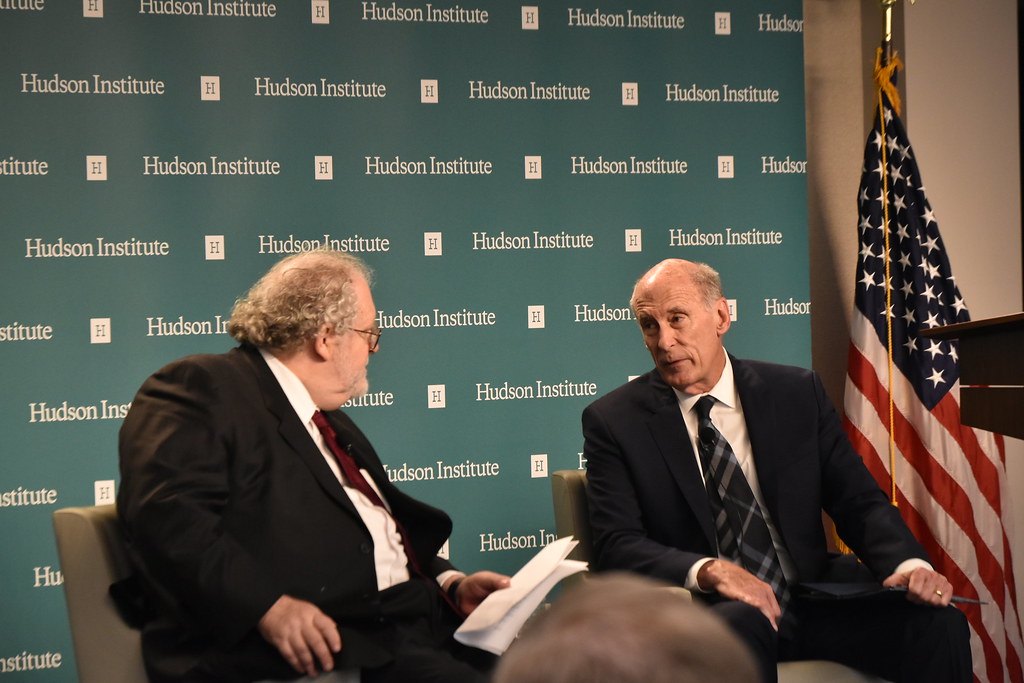When Dissent Is the Only Choice: A Response to 'Intelligence and Public Dissent'
Joshua Rovner’s insightful response to my post on politicization by a loyalist director of national intelligence (DNI) focuses on the issue of public dissent. Rovner and I share many concerns about who President Trump may seek to install as DNI.

Published by The Lawfare Institute
in Cooperation With

Joshua Rovner’s insightful response to my post on politicization by a loyalist director of national intelligence (DNI) focuses on the issue of public dissent. Rovner and I share many concerns about who President Trump may seek to install as DNI. However, he takes issue with my claim that, under the Trump presidency, public departures by past DNIs from the White House’s messaging have been valuable. Rovner sees two problems with public dissent by intelligence leaders: They tend to provoke political leaders to exert internal pressure, which invites politicization; and they lead to “partisan intelligence.”
In thinking through these potential problems, it helps to distinguish between public dissent about intelligence assessments and public dissent about policy or partisan issues. A DNI should be willing to disagree with presidential claims when these flatly contradict the consensus view of the intelligence community about questions of fact or interpretation. Failure to do so undermines the actual and perceived independence of intelligence agencies. However, the DNI should carefully avoid taking public stances on questions of policy judgment. A reckless or aggressive public role invites the problems Rovner identifies and should be avoided.
This distinction is illustrated by an example I discuss in my post: Coats’s testimony on North Korea, Russia and other intelligence threats in January. Rovner rightly cautions intelligence leaders against publicly dissenting “if they think policies are wrongheaded.” But that is not what Coats did. The DNI was required by Congress to publicly review the intelligence community’s view of national security threats. He reported these conclusions, even though they were at odds with claims by the president and some of his aides. Coats did not punctuate these differences by taking a position on policy. He could have connected estimative judgments to policy debates on arms sales to Ukraine or direct talks with North Korea, but he chose not to.
This incident also illustrates a hard truth that is difficult to reconcile with Rovner’s view: The DNI has no choice. Coats did not ask to appear before Congress. He and other top intelligence leaders were publicly reporting on threats because Congress requires it. These kinds of public reporting requirements are common. A 2012 law, for example, required the DNI to publicly report the fate of detainees released from Guantanamo Bay, including “an assessment of the likelihood that such detainees will engage in terrorism.” No DNI could remain in compliance with this law and avoid taking a stance on an issue with clear relevance to U.S. terrorism policy.
Under the Trump presidency, these public reporting requirements regularly put intelligence leaders in a difficult dilemma. They may avoid a public break with the White House, along the lines Rovner advocates, but at the expense of accurately representing intelligence. This seems a textbook case of politicized intelligence. The only alternative is for the DNI to accurately report intelligence assessments even if it does not align with statements by the president or his aides.
To be clear, Rovner is correct that public dissent—of any kind—will lead to internal pressure from political leaders to get in line. Yet by keeping any public dissent narrowly focused on intelligence conclusions rather than policy, a future DNI would find it easier to marshal allies within government to resist political pressure. Moreover, judicious acts of public dissent can trigger scrutiny from outside the executive branch that reduces the long-term risk of politicization. Public departures on estimative questions can raise alarm bells for members of Congress, encouraging them to quietly push back against a loyalist nominee, just as they did with Rep. John Ratcliffe.
The public role for intelligence in a democracy is no simple matter, as Rovner points out. Moreover, the role of intelligence professionals in triggering the ongoing impeachment inquiry infuses this question with new urgency. Now is a critical time to debate if public dissent can go too far—and when it is essential to defending the integrity of the intelligence process.





